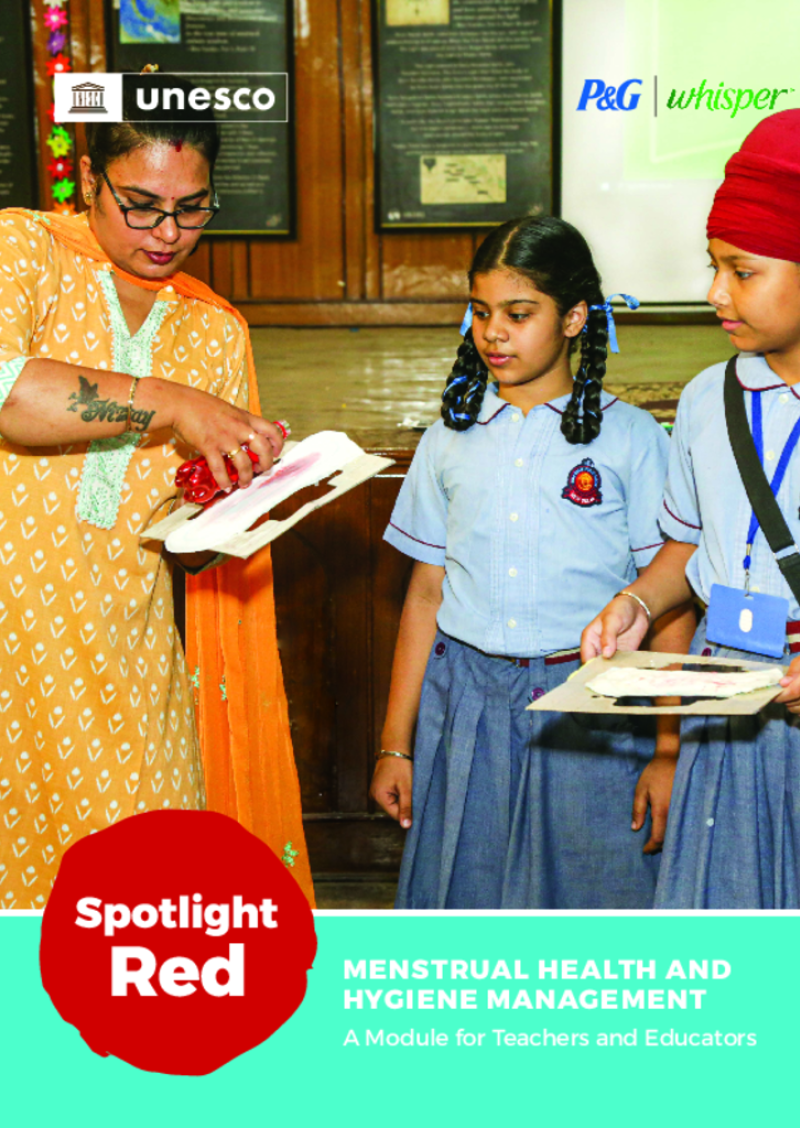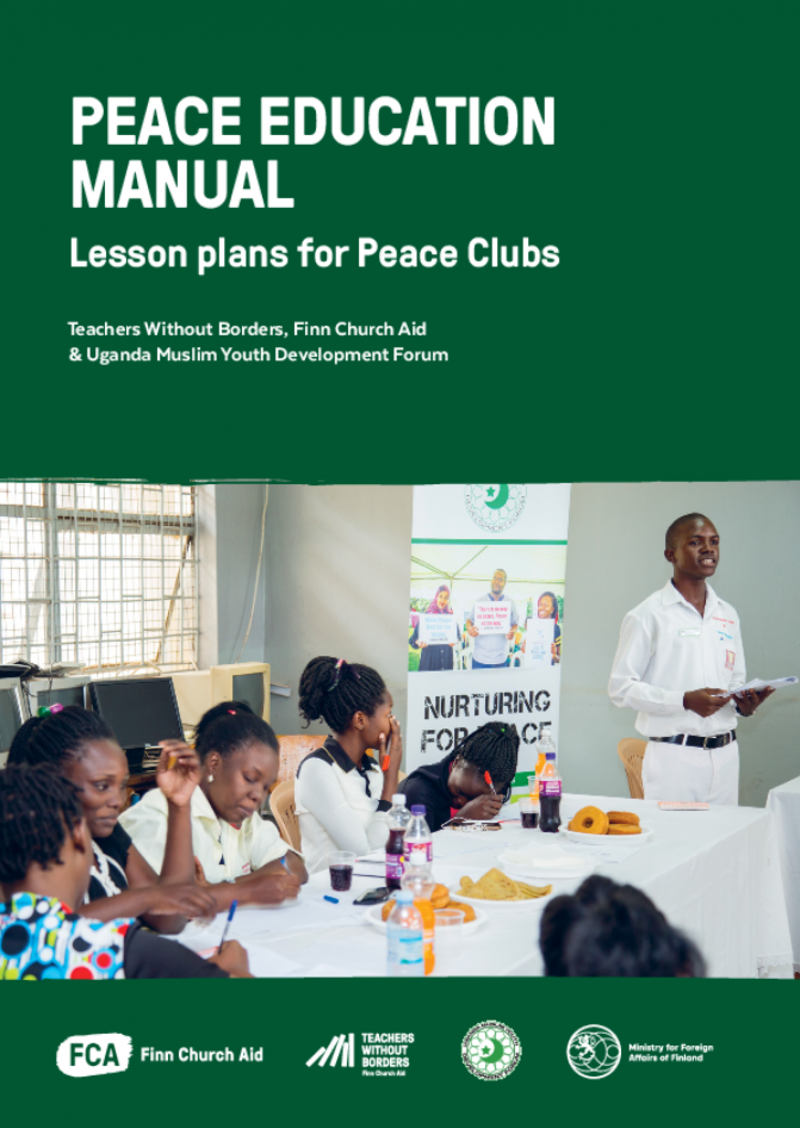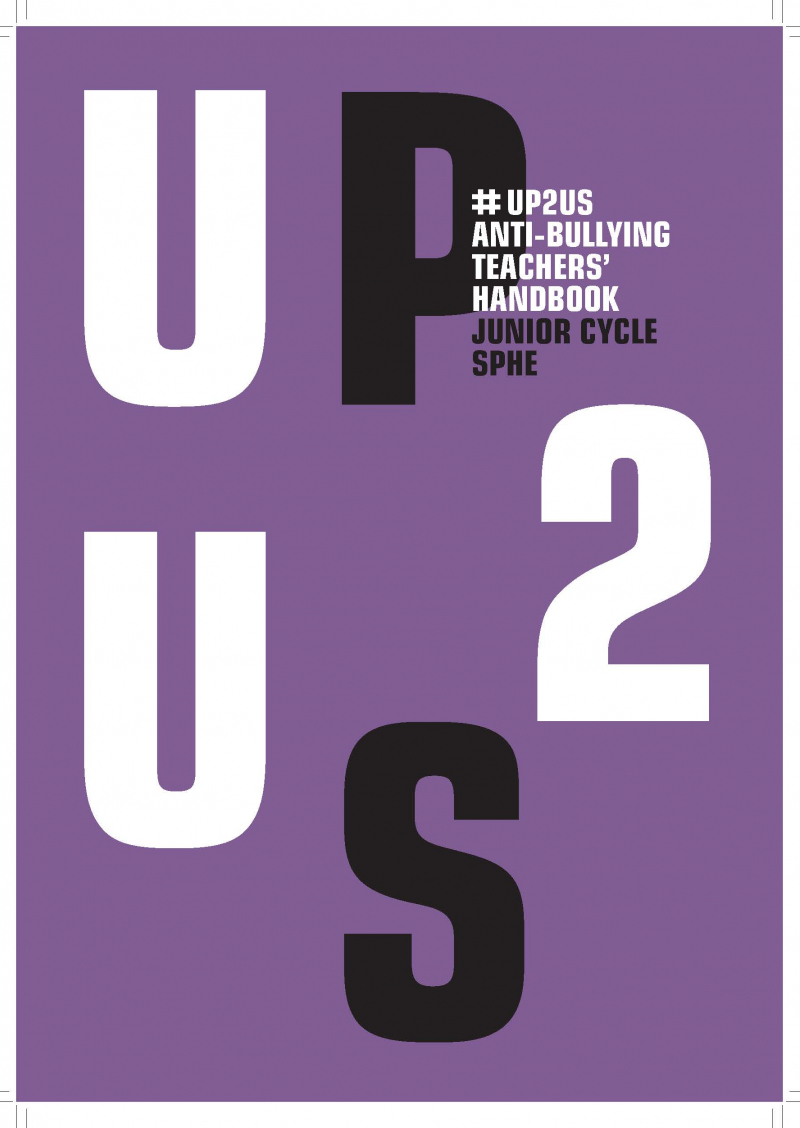Teacher Resource Centre
Displaying 1 - 8 of 8
Menstrual health and hygiene management: a module for teachers and educators
This publication is part of a series of teaching-learning modules developed by UNESCO and P&G Whisper India with the goal of integrating period and puberty education in school curricula. The series is structured into five modules that address key intervention areas related to MHHM, including: 1. building a curriculum that understands the biological and social impacts of puberty; 2. guiding teachers on the menstrual hygiene education curriculum; 3. providing teaching-learning materials geared towards addressing the specific needs of girls with disabilities; 4. highlighting the impact of gender inequalities on menstrual health and hygiene for both girls and boys; and 5. addressing nutritional approaches related to menstrual health and hygiene. This teaching-learning module was developed for teachers working in various contexts and with diverse needs and aims to support them in initiating conversations around MHHM and including the subject in school curricula for students across the gender spectrum. The purpose of this module is to provide facilitators with multiple and comprehensive strategies that lead to positive changes in attitudes, behaviours and practices around menstruation. Each chapter contains explanations of the subject at hand, stories, case studies, learning activities, illustrations and tables designed to provide a better understanding of the issues surrounding MHHM. A glossary is also included to ensure that you, the reader, become familiar with different terms related to menstruation.
Active Teaching and Learning Manual
The Active Teaching and Learning booklet presents the principles and practices of learner centered pedagogy as a teaching approach to achieve quality education. It is accompanied by cards on methods, techniques and tools, which provide teachers with examples and tips for classroom implementation. The booklet was developed by the Teacher Instructor Education Training department of the Ministry of Education, Science Technology and Sports of Uganda, with support from the Belgian Development Agency, in the framework of the Teacher Training and Education project.
How to use ICT tools in teaching and learning
This booklet presents a selection of ICT tools to integrate into teacher training in Uganda. Every tool is accompanied with creative ideas and suggestions on how to engage learners and enrich lessons.
Technology enhanced learning
This course is an introduction to technology enhanced teaching and learning.
General teaching methods
This course aims to get the best out of the teaching practices from pre-service teachers, in-service teachers and anyone who is eager to contribute to quality education. It has been written by the Teacher Training Education Project, implemented by Enabel and the Ministry of Education and Sports in Uganda.
Peace Education Manual. Lesson plans for Peace Clubs
This Peace Education Manual has been developed in collaboration with Finn Church Aid (FCA) Uganda, local partner Uganda Muslim Youth Development Forum (UMYDF) and Teachers Without Borders (TWB) Network Finland.
The manual was developed to strengthen the pedagogical and methodological quality of local peace clubs during the spring and summer of 2022. The contents of the manual were successfully piloted with more than 480 young people in eight lower secondary school peace clubs established and run by UMYDF with the support of FCA in Uganda. Two of the peace clubs are located in the Bidibidi Refugee Settlement, one of the largest refugee settlements in the world.
The material consists of 34 lessons plans and is primarily aimed for young people. The different sections and activities of the material can be used flexibly in training, clubs, or, for example, as individual lessons on peace building, socio-emotional skills, conflict resolution or cooperation skills. The exercises are functional, learner-centered and emphasize active participation of youth. The material is adaptable for use anywhere in the world.
FCA and UMYDF have been working together since 2016 in Uganda to promote the positive role of youth in conflict prevention and peacebuilding. In our work, peace education is defined as a holistic, multidisciplinary and transformative process that seeks to develop capacities that promote non-violent conflict resolution, respect for human rights and active participation.
Transformative pedagogy for peace-building
This guide is designed to build the capacity of teachers so that they are informed and empowered in why and how to educate for peace-building. It offers an analysis of conflict, examines the role of ethics, expands on the elements of transformative pedagogy and provides practical tools to assess learners’ understanding of peacebuilding concepts and skills. It concludes with 20 engaging activities to support experiential learning.
The guide was developed as part of the "Teacher Training and Development for Peace-building in the Horn of Africa and Surrounding Countries project", which has as a long-term goal to develop a critical mass of teachers able to implement effective teaching and learning essential for preparing peace-loving and productive youth in Eritrea, Ethiopia, Kenya, Somalia, South Sudan and Uganda.
Anti-bullying teacher's handbook
This anti-cyber bullying resource is designed to enable students to develop a positive sense of themselves and a commitment to caring for themselves and others.
It includes a set of ten lesson plans that is intended to be used by teachers and schools who wish to address the issue of bullying as a whole, with particular focus on the issue of cyber bullying.




